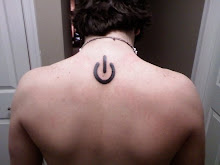1. We've talked a lot about History in this class and how history is made up by the "victor" (as Krzysztof suggests). He mentions in the beginning how if we were to "heal one voiceless stranger, then, [we would] heal the entire city". What do you think he means by this? Is reaching out to those who were the victims, the ones with the real stories, the real history?
2. Krzysztof goes on to talk about how strangers and nonstrangers have this separation in between each other; that the "local" is in somewhat 'fear' of the stranger and the stranger feels valueless to the society they have no entered. What is your experiences with this? For example, In class we talked a lot about how the Northeastern area (NJ, NY, etc) that we live in is very susceptible to that kind of behavior, even to other locals that are not immigrants. We talked about our personal space and how when someone tells us their experiences or 'life-story', that it becomes weird. Why is this?
3. When the author brings up multiple propositions to help mediate or mend the gap in between strangers and non strangers or the said and the unsaid, he says we need a communicative instrument. Now think for a couples minutes if everyone on the planet (yes all 90480398402482098 billion) had access to a facebook or something related type medium (possible a giant world-wide forum of sharing). If it was this easy do you think more stories would be told? New truths be uncovered? (through pictures, because we all know that pictures, wall posts, shared links etc, all tell a narrative of their own)
Monday, March 8, 2010
Subscribe to:
Post Comments (Atom)

No comments:
Post a Comment